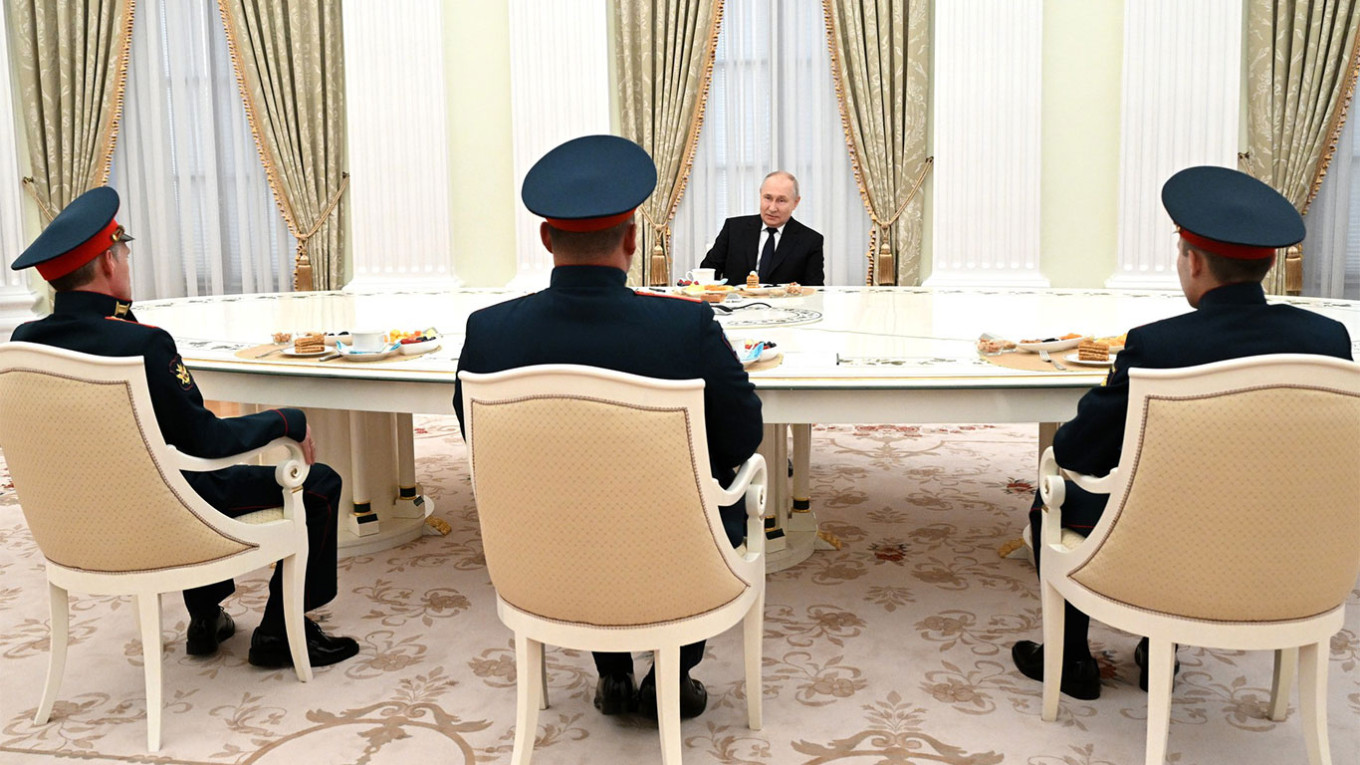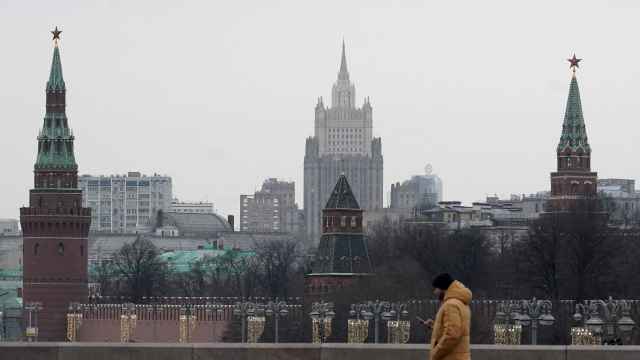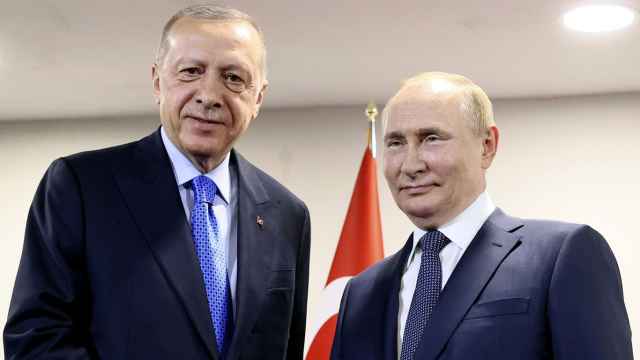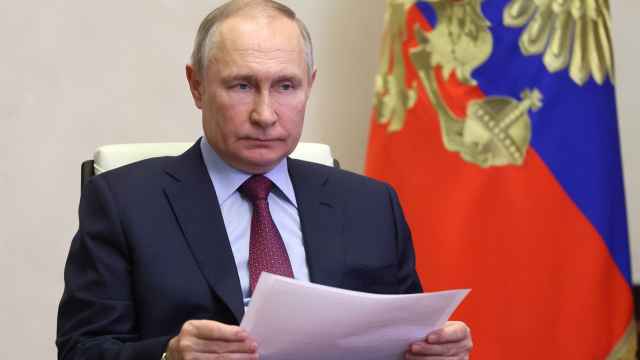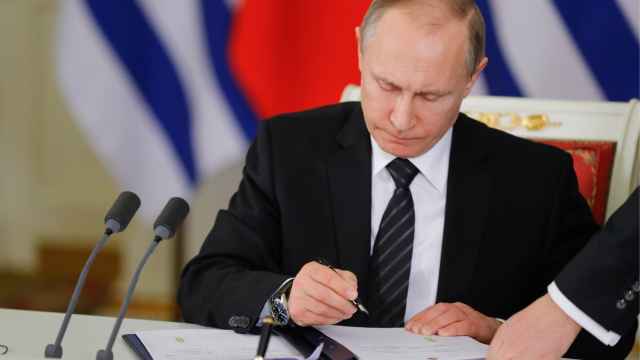President Vladimir Putin on Friday said that Russian prisoners who died in Ukraine had redeemed themselves in the eyes of society.
To boost regular troops fighting in Ukraine, the army and mercenary group Wagner have extensively recruited from Russian penal colonies.
"They are dead," Putin said during a televised meeting, referring to prisoners who died in Ukraine.
"Everyone can make some mistakes, they once did. But they gave their lives for the Motherland, and fully redeemed themselves," Putin said at the meeting with servicemen who fought near Ukraine's Urozhaine on the southern front.
After a short discussion with the soldiers, Putin observed a minute of silence to honor the prisoners who died in combat.
The Russian leader said that soldiers who fought near Urozhaine — where the Defense Ministry said a Ukrainian attack was repelled — were "an emblematic example of courage and heroism."
Convicts have reportedly been used as cannon fodder including in the eastern Ukrainian hotspot city of Bakhmut.
International experts have said that in some cases prisoners were recruited to fight in Ukraine through threats or intimidation.
Many experts and Kremlin critics say that rehabilitating and reintegrating traumatized ex-soldiers is a major challenge for Russia.
Some of the former prisoners returning from the front commit new crimes.
Russian authorities have traditionally praised patriotism and a culture of self-sacrifice, including by commemorating the Soviet victory in World War II.
A Message from The Moscow Times:
Dear readers,
We are facing unprecedented challenges. Russia's Prosecutor General's Office has designated The Moscow Times as an "undesirable" organization, criminalizing our work and putting our staff at risk of prosecution. This follows our earlier unjust labeling as a "foreign agent."
These actions are direct attempts to silence independent journalism in Russia. The authorities claim our work "discredits the decisions of the Russian leadership." We see things differently: we strive to provide accurate, unbiased reporting on Russia.
We, the journalists of The Moscow Times, refuse to be silenced. But to continue our work, we need your help.
Your support, no matter how small, makes a world of difference. If you can, please support us monthly starting from just $2. It's quick to set up, and every contribution makes a significant impact.
By supporting The Moscow Times, you're defending open, independent journalism in the face of repression. Thank you for standing with us.
Remind me later.


